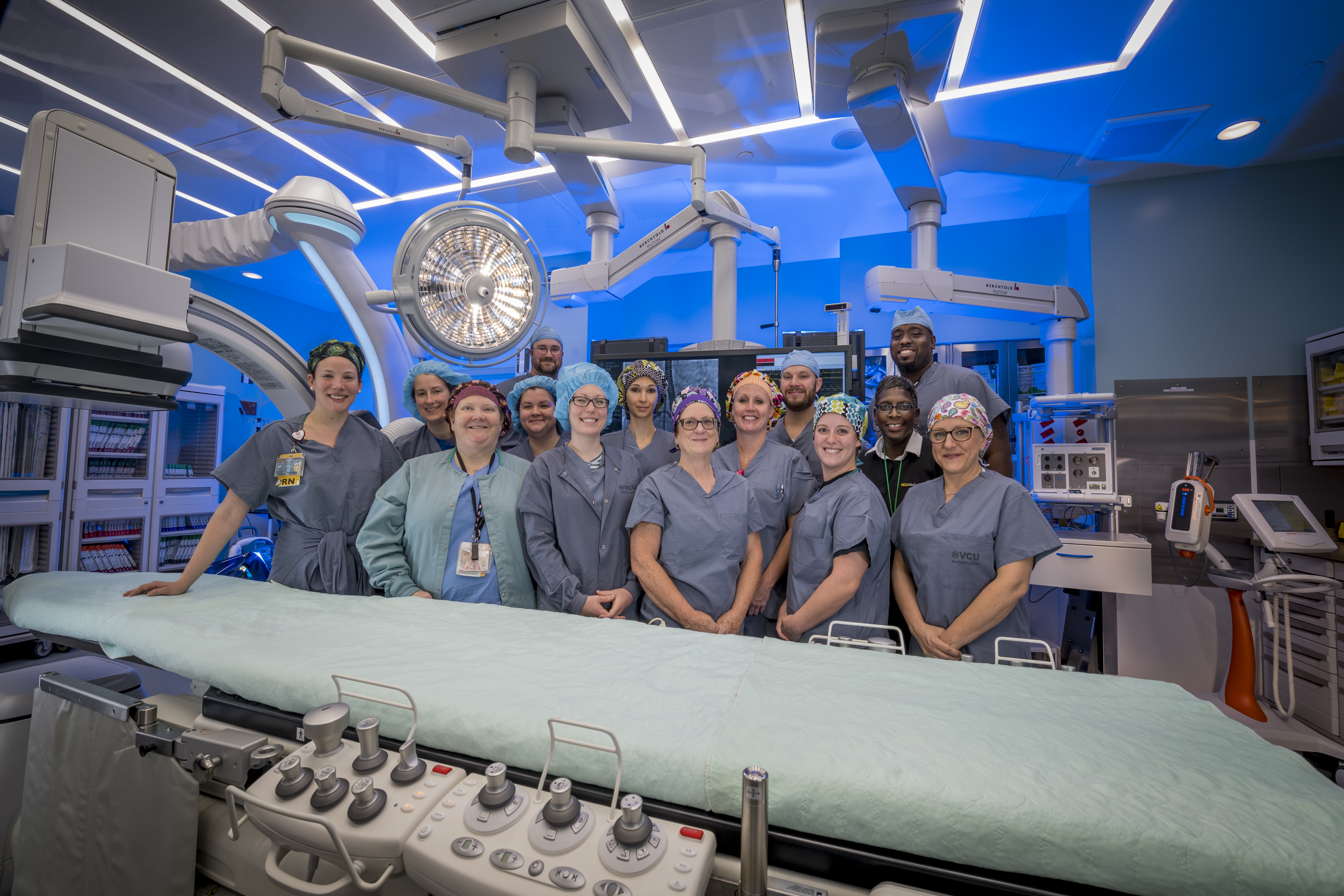VCU is all heart

We performed the 16th heart transplant in human history more than half century ago. And we continue to be on the front lines of the war against mankind’s greatest killer.
Every year, about 630,000 Americans die of heart disease.
That’s a staggering number. To put it in tragic perspective, that’s like losing the entire population of Richmond every four months to the exact same cause.
Heart disease kills more than one person every minute in the United States, and someone has a heart attack every 40 seconds. Heart disease causes nearly one-quarter of all deaths in our nation every year. It is the leading cause of death for women and men; for African Americans, Hispanics and whites. Nearly half of all Americans have one or more of the primary risk factors of heart disease: high blood pressure, high cholesterol and smoking.
It also devastates our nation’s economy. The combined costs of cardiac healthcare services, medication and lost workplace productivity reaches $200 billion annually, which is enough to operate the entire Commonwealth of Virginia for 3.5 years.
By any measure, heart disease is one of the biggest problems our society faces, and we need big solutions. Virginia Commonwealth University is dedicated to finding them.
VCU Health Pauley Heart Center has a nationally prominent treatment and research center for more than 30 years. Thousands of patients turn to Pauley for life-saving care every year, and the American Heart Association honored us with its 2017 Mission: Lifeline Gold Receiving and Bronze NSTEMI awards, recognizing the exceptional patient care we provide. (NSTEMI means Non-ST-elevation myocardial infarction, a type of heart attack.)
Our exceptional work breaks new ground, but it is hardly new. In fact, VCU Health has the second oldest heart transplantation program in the United States. On May 25, 1968 Richard R. Lower, M.D., performed the first heart transplant in Virginia on the 11th floor of West Hospital. This was only the 16th transplantation in the world at that time and one that would change the legal definition of brain death, a landmark court decision that continues to benefit transplant recipients.
A half century later, VCU Health continues to be a national leader in transplantation and implantation. We recently performed our 114th total artificial heart implant; only three hospitals in the world have ever done more. Last year, we performed our 600th heart transplant overall, one that saved the life of a North Carolina woman who was turned away from several other transplant centers and penned goodbye letters to her children.
Pauley Heart Center is filled with remarkable people with remarkable vision. I could not be more proud of my colleagues at Pauley, nor more excited about the innovations and discoveries they are advancing and the lives they are saving. They embody VCU’s 181-year commitment to ensuring that what happens here matters far beyond the boundaries of our campus.
Work of this magnitude and profound significance takes the efforts of more than a few of us. Indeed, the achievements we have made together in cardiovascular care are not confined to one or two spaces at VCU. We are breaking new ground in clinical discovery and innovation across VCU. For example, Jordana Kron, M.D., in our School of Medicine is working with Jennifer Jordan, Ph.D., in our College of Engineering to find new ways to treat cardiac sarcoidosis, an inflammatory condition that can cause cardiac failure. Their work is funded through the American Heart Association, Pauley Heart Center and the VCU C. Kenneth and Dianne Wright Center for Clinical and Translational Research.
Another cross-disciplinary team at VCU, representing the Division of Cardiology and Department of Psychiatry, is the leading voice in diagnosing and treating Takotsubo cardiomyopathy, also known as “broken-heart syndrome,” a condition where serve stress causes the muscles comprising the left ventricle to weaken to devastating effects.
A few months ago, we opened a $9 million, 7,200-sq.-ft. cardiovascular imaging suite in North Hospital that’s on the leading edge of cardiovascular care and enables collaborative clinic research and treatment from colleagues in Cardiovascular Medicine, Radiology, Biomedical Engineering, Medical Informatics, Physical Medicine and Rehabilitation, and Behavioral Medicine. Together, this group works to treat and present heart failure in cardiac and cancer patients.
We are among the first institutions using hologram imaging and 3-D modeling to plan complex and delicate heart surgeries, an innovation begun in our No. 17-nationally ranked School of Pharmacy.
Across VCU, we also commit to social justice and equitable health outcomes, so we recognize and combat poverty as a catalyst of heart disease. People from lower socioeconomic households are up to 50 percent more likely to suffer heart disease, even if other risk factors are mitigated. We see this in Southside Virginia, where rates of poverty and heart disease are both exponentially higher than in Richmond. VCU Health leads in improving health outcomes in the region, including at VCU Health Community Memorial Hospital in South Hill, Va.
Everywhere at VCU, and in every region of our Commonwealth, we are committed to solving humanity’s greatest challenges. That includes the incredible strides we are making to treat and defeat humanity’s No. 1 killer. For more than half a century, we have stood on the front lines of the war against heart disease. And our work is just beginning.
Categories 21st-Century University, Health, News